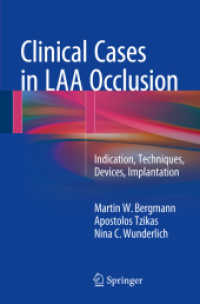- ホーム
- > 洋書
- > ドイツ書
- > Social Sciences, Jurisprudence & Economy
- > Politics, Society, Work
- > political science
Full Description
This book addresses, for the first time, the question of how development NGOs attempt to 'listen' to communities in linguistically diverse environments.






